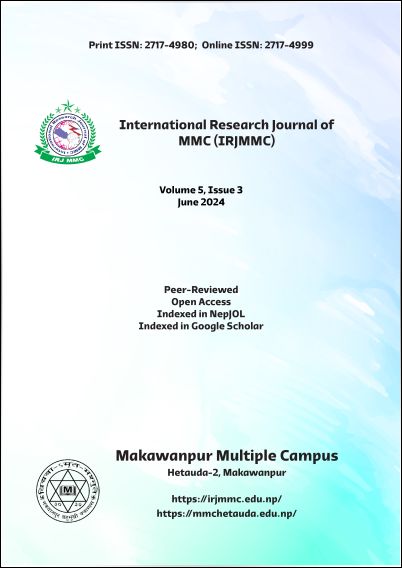Impact of Home Assignment on the Achievement of Students in Makawanpur District, Nepal
DOI:
https://doi.org/10.3126/irjmmc.v5i3.68521Keywords:
Home assignment, Homely environment, Parental support, Students achievementAbstract
The main goal of the study is to analyze the impact of home assignment on the achievement of students. The null hypothesis states there is no association between practices of home assignment and the achievement of the students. The study was guided by Achievement Goal Theory of Nicholls as well as descriptive and analytical research design was applied. At the same time, the cross-sectional data collection method was administered. The study was carried out among 386 students of 14 sampled schools of Makawanpur district, Nepal 2024 AD. The students were selected with the stratified random sampling method. The study shows that the students of educated parents spent less time in doing home assignment as compared with the students of illiterate parents. The parental support seems to have positive result on doing home assignment of the students. The location of school and students did not have any effect on doing home assignment. The result shows that there was the positive impact of home assignment on the achievement of the students and statistically, there significant association (p=0.022≤ 0.05) between home assignment and the achievement of students. Home assignment for both the students and parents is a burden. There was a debate on home assignment that it harmed the mental health of the children, at the same time some studies claimed that it had a positive impact on the achievement of the students if administered effectively. The study also emphasized the importance of home assignment for the better achievement of the student in school life. The study helps educational institutions to form a strategic plan and develop the model of home assignment that enhance the achievement of students.
Downloads
Downloads
Published
How to Cite
Issue
Section
License
Copyright (c) 2024 The Author(s)

This work is licensed under a Creative Commons Attribution-NonCommercial 4.0 International License.

